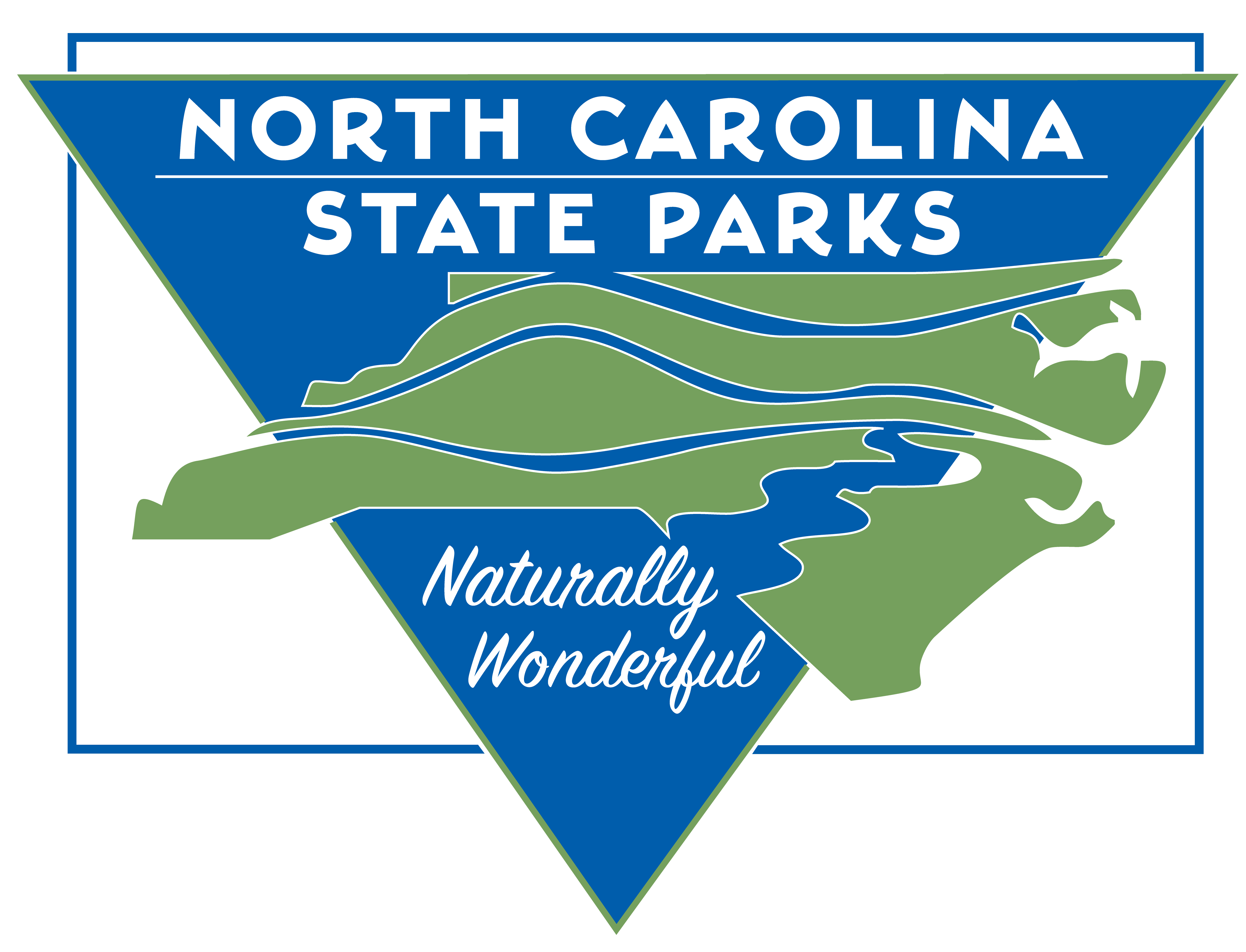Leave No Trace
The N.C. Division of Parks and Recreation is partnering with the Leave No Trace Center for Outdoor Ethics and Outdoor NC to help our park visitors learn about how they can minimize negative human impacts on the natural world using The Seven Principles. These Leave No Trace principles teach people of all ages how to enjoy the outdoors responsibly. In its simplest form, Leave No Trace is about making good decisions to protect the world around you — the world we all enjoy. Thank you for taking the time to read about The Seven Principles to do your part in caring for North Carolina state parks and trails.

The Seven Principles
- Schedule your trip to avoid times of high use.
- Repackage food to minimize waste.
- Use a map and compass or GPS to eliminate the use of marking paint, rock cairns, or flagging.
- Prepare for extreme weather, hazards, and emergencies.
- Know the regulations and special concerns for the area you'll visit.

- Durable surfaces include maintained trails and designated campsites, rock, gravel, sand, dry grasses, or snow.
- Protect riparian areas by camping at least 200 feet from lakes and streams.
- Good campsites are found, not made. Altering a site is not necessary.
- Concentrate use on existing trails and campsites.
- Walk single file in the middle of the trail, even when wet or muddy.
- Keep campsites small. Focus activity in areas where vegetation is absent.

- Pack it in, pack it out. Inspect your campsite, food preparation areas, and rest areas for trash or spilled foods. Pack out all trash, leftover food and litter.
- Utilize toilet facilities whenever possible and pack out toilet paper and hygiene products.
- To wash yourself or your dishes, carry water 200 feet away from streams or lakes and use small amount of biodegradable soap. Scatter strained dishwater.

- Preserve the past: examine, photograph, but do not touch cultural or historic structures and artifacts.
- Leave rocks, plants, and other natural objects as you find them.
- Avoid introducing or transporting non-native species.
- Do not build structures or furniture, or dig trenches.

- Campfires can cause lasting impacts to the environment. Use a lightweight stove for cooking and enjoy a candle lantern for light.
- Where fires are permitted, use established fire rings, fire plans, or mound fires.
- Keep fires small. Only use down and dead wood from the ground that can be broken by hand.
- Burn all wood and coals to ash, put out campfires completely, then scatter cool ashes.

- Observe wildlife from a distance. Do not follow or approach them.
- Never feed animals. Feeding wildlife damages their health, alters natural behaviors (habituates them to humans), and exposes them to predators and other dangers.
- Protect wildlife and your food by storing rations and trash securely.
- Control pets at all times or leave them at home.
- Avoid wildlife during sensitive times: mating, nesting, raising young, or winter.

- Respect other visitors and protect the quality of their experience.
- Be courteous. Yield to other users on the trail.
- Step to the downhill side of the trail when encountering pack stock.
- Take breaks and camp away from trails and other visitors.
- Let nature's sounds prevail. Avoid loud voices and noises.



